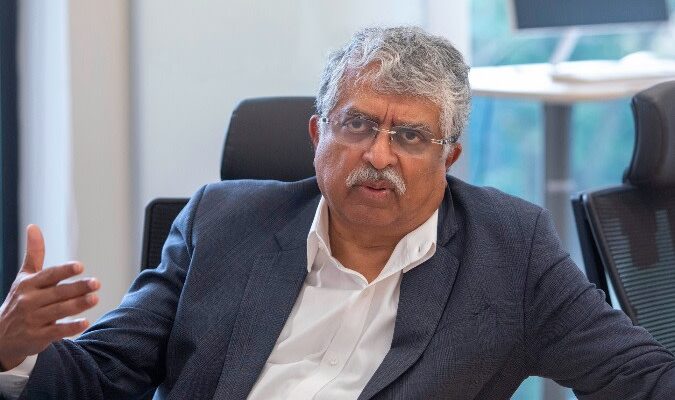Good morning. It’s Robin here again, standing in for Veena. My challenge right now as the FT’s Asia editor is to reflect the economic disruption caused by Donald Trump without letting him swamp our coverage of everything else. Are we getting the balance right? Drop me a line and let me know.
In India, meanwhile, there’s plenty to talk about. Today’s newsletter looks at Flipkart’s likely entry into consumer lending, but first, a blockbuster move by the Reserve Bank of India. Many of you got your forecast exactly right in last week’s poll. Veena has smart readers.
Should central bankers aspire?
There was a lot to like and one big thing to worry about in the RBI’s decision last week to cut the repo rate by 50 basis points to 5.5 per cent. (It cut reserve requirements by 100 basis points as well.) For a central bank, it’s always more comfortable to be cutting rates rather than raising them, and Governor Sanjay Malhotra has been blessed with a steady moderation of inflation since he took office late last year. Headline consumer prices were up 3.2 per cent year on year in April, the lowest in six years.
Most forecasters expected a 25 basis point cut but the decision to surprise them makes sense: if you think rates belong at 5.5 per cent then best to get there straight away, in one 50-point move, rather than create an artificial smoothness to policy by going step by step. The decision to switch the future stance from “accommodative” to “neutral” was also decisive and painted a clear picture for markets. The yield curve steepened, equities rose and the rupee traded a little higher after the decision — by and large, the RBI should feel happy with that for a day’s work.
The part I didn’t like was in Governor Malhotra’s comments. “Today’s monetary policy actions should be seen as a step towards propelling growth to a higher aspirational trajectory,” he said. That bothers me because it implies the RBI can raise India’s growth rate, which is dangerous territory for a central bank. “I would like to highlight that there is no tussle between price stability and growth in the medium and long term,” said the governor. True, but also a little misleading, because it implies the central bank has influence beyond price stability.
Growth comes from the supply side of the economy: from investment, reform and rising productivity. The task of the central bank is to regulate demand so it grows in line with that potential. Certainly, the central bank can undermine growth if it keeps demand too low, but trying to drive supply higher by boosting demand is the well-known recipe for credit booms and inflation.
I’ve no issue with the RBI’s actions this time around, and with inflation falling against an uncertain global backdrop, it’s reasonable to worry about growth — just leave the aspiration to others.
Have I got the RBI’s rhetoric wrong? Hit reply or email me at indiabrief@ft.com. And if you’re a monetary policy wonk like me, sign up for my colleague Chris Giles’ Central Banks newsletter.
Recommended stories
Coal India is reopening 30 mines, says chair PM Prasad in our interview.
Shameless self promotion: my column on the strange phenomenon of zero interest rates in Hong Kong.
Duolingo’s chief executive gives us an interview on the backlash to his policy of “AI-first”.
Chardonnay is the world’s most changed wine, says Jancis Robinson.
Stanley Fischer was the epitome of a policymaker economist. Martin Wolf’s obituary does him justice.
Flipkart shakes up consumer finance

Flipkart, the ecommerce group controlled by Walmart of the US, has become the first such player to receive a lending licence from the RBI, paving the way for a shake-up of India’s consumer finance market. At present it offers loans via retail banking and credit card partners. Amazon, Flipkart’s big rival, acquired a buy-now-pay-later consumer lending start-up called Axio earlier this year, suggesting it has a similar plan in mind.
Should India’s banking sector be alarmed? Based on experience around the world, the answer is both yes and no.
The big advantage retailers have in financial services is distribution. People shop regularly, it often gives them pleasure and their purchases create an immediate demand for credit. By contrast, people interact with their banks more rarely, and seldom with enthusiasm. Hence, retailers often do well at selling loans and the business creates value for their shareholders.
In the long run, however, success in banking requires heavy investment in systems, rigour on compliance and low funding costs. Retailers tend to find, after a while, that they’ve created all the value they can. Tesco, the UK supermarket, sold its lending arm to Barclays last year. The parent company of 7-Eleven in Japan is looking at a partial sale of Seven Bank as it tries to stave off a takeover. Walmart itself has generally worked through partners to provide financial services.
An exception to this pattern is China, where Alibaba and Tencent, the internet platforms, have had a huge impact via their respective financial services divisions — but that says more about the inefficiency of China’s state-controlled lenders than the business fundamentals. All traditional banks are vulnerable now to fintech disruption, but the distribution power of retailers is not, in itself, the threat to worry about.
Go figure
The RBI has put abundant liquidity into the banking system, with more to come as cuts to reserve requirements take effect.
Interbank rates are trading low relative to the RBI’s policy rate
Rs6.7tn
Durable liquidity at end June (Citi est)
5.5%
RBI repo rate
5.35%
Overnight MIBOR
My mantra
“I offer advice to serve, not to please — trust comes from truth, not flattery.”
Sunil Khaitan, managing director & head of India financing group, Goldman Sachs

Each week, we invite a successful business leader to tell us their mantra for work and life. Want to know what your boss is thinking? Nominate them by replying to indiabrief@ft.com
Quick question
A recent survey suggests that more than half of US workers were given the sack via email or phone. My colleague Pilita Clark wrote about this phenomenon in her latest column, calling it a “needlessly cruel blot on corporate life”. Do you agree? Take part in our poll below.
Buzzer round
On Friday, we asked: Which uniquely British phenomenon started as a way to get more people into pubs on quieter nights?
The answer is . . . the pub quiz. Read up on the unwritten rules of this hallowed institution.
Ram Teja is our winner this week, followed by Aniruddha Dutta and Prasanna Venkatesh. Congratulations!
Thank you for reading. India Business Briefing is edited by Tee Zhuo. Please send feedback, suggestions (and gossip) to indiabrief@ft.com.



